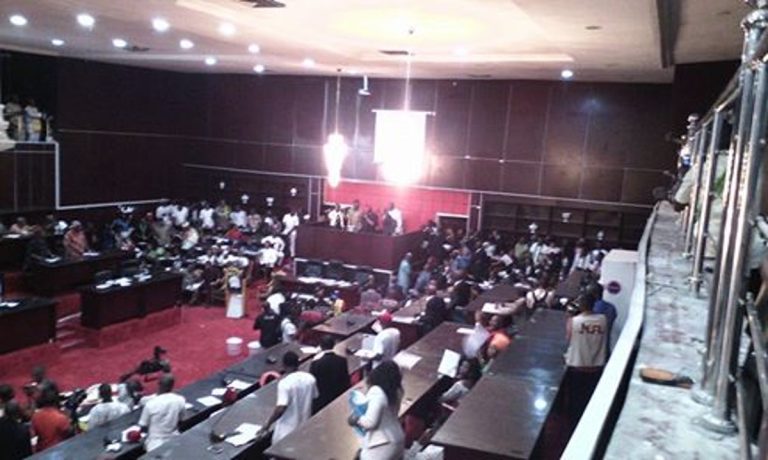The Imo State House of Assembly has passed the State electrical bill that has been on its table for some time into law.
The bill which aims at improving electricity access and regulation was passed after much deliberations by members of the house.
The Chief sponsor of the bill Kanayo Onyemaechi, a member representing Owerri West Constituency and also majority leader of the house while speaking with House of Assembly correspondents said the bill was drawn from the Federal Electricity Act of 2023 which empowers states to have a legal framework to issue licenses and regulate electricity agencies in their respective states.
Onyemaechi informed that the electricity landscape in Nigeria is undergoing a significant transformation, signalled by the enactment of the Nigerian Electricity Act of 2023.
He said the new legislation represents a significant shift in the industry, ushering in an era of increased competition and innovation across the entire electricity value chain.
“Under the Act, states can now issue licenses for mini-grids and power plants, decentralizing the process and enabling local decision-making for electricity generation and distribution. Furthermore, the Act encourages the adoption of renewable energy sources, a crucial step towards achieving a more sustainable and resilient electricity system.
“Again coming to Imo State, the newly passed bill, by the Imo State House of Assembly, seeks to improve the generation, transmission, and distribution of electricity in the state. The legislation intends to establish a regulatory framework for the Imo State electricity market to ensure a reliable and sustainable electricity supply within the state,” he observed.
Throwing more light on the bill, the House majority leader pointed out that key provisions of the bill include the creation of an electricity market within the state to improve access to electricity for its residents, and the establishment of a regulatory framework for the electricity market, designed to guarantee the supply of electricity and protect the interests of consumers.
He further maintained that with the passage of the bill, the state’s residents can expect to enjoy the same benefits afforded by the federal Electricity Act of 2023, including:
Empowering State Government to craft electricity policies that align with the state’s specific needs, improving service quality and accessibility.
It will also create room for a more competitive electricity market which will foster innovation, leading to better services and lower prices for consumers, he said.
He further added that it will encourage the adoption of renewable energy sources which he said will lead to cleaner, more sustainable power generation and a healthier environment and others.
Commenting on the new law, an energy expert, Raymond Ikpedikwa while speaking to our correspondent in Owerri narrated that in April 2024, a significant stride towards localizing electricity regulation was adopted in Nigeria, when the Nigerian Electricity Regulatory Commission, NERC ceded regulatory oversight of both the Enugu and Ekiti State electricity market to the Enugu State Electricity Regulatory Commission, EERC and the Ekiti State Electricity Regulatory Commission respectively, EKERC.
He said those transferred Enugu and Ekiti States now wield the power to regulate and manage their electricity sector locally thereby creating what he referred to as a tailor-made approach which he said can more effectively cater to the unique needs of their consumers.
Ikpedikwa went further to say that shifting away from centralized regulation promises a more responsive and dynamic electricity market that can adapt to the specific challenges and opportunities within the state.
“State regulators can now implement innovative solutions, respond quickly to market changes, and forge partnerships with stakeholders to drive sustainable growth.
Imo State is on the brink of taking charge of its electricity sector, emulating the earlier moves of Enugu and Ekiti States, which have already successfully implemented their respective State-level electricity regulation” he said.
The energy expert, however, advised that the law be given teeth to bite now that it has been passed by putting in place every logistics required for it to carry out its full operation.
